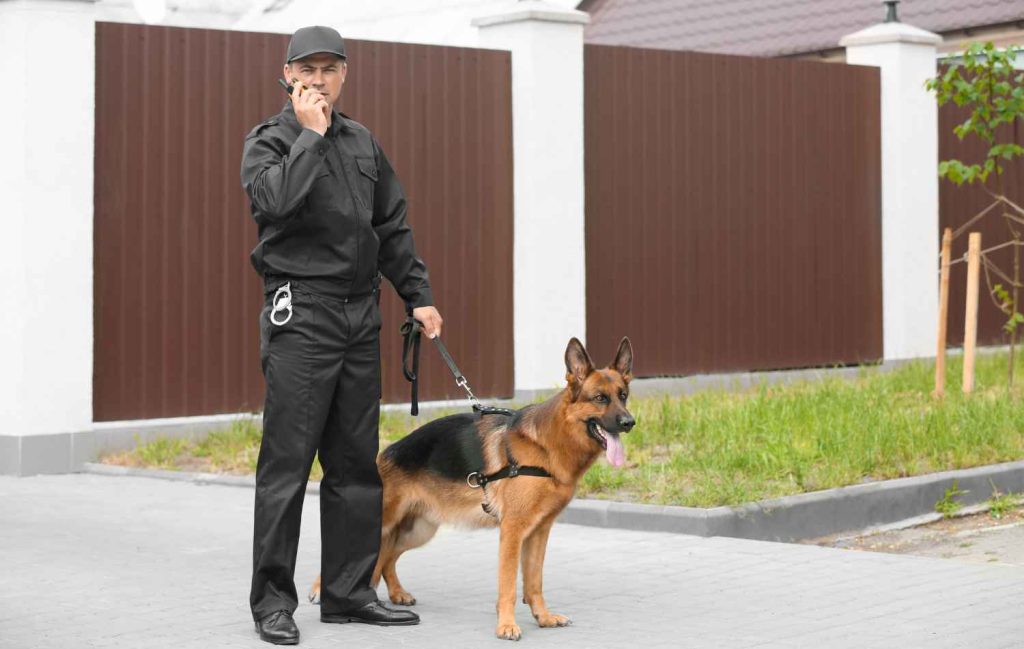
Navigating the world of security can be complex, yet essential for maintaining safety and order across various settings. From bustling shopping malls to sensitive government facilities, security personnel play a crucial role in safeguarding people and assets. As someone deeply invested in this field, I understand the importance of comprehensive training programs that equip professionals with the necessary skills and knowledge.
Security courses and training programs are designed to meet the diverse needs of today’s security professionals. They cover a wide range of topics including basic security techniques, emergency procedures, and specialized management skills. These programs not only enhance the capabilities of security personnel but also ensure compliance with state regulations, often requiring completion within the first 100 days on the job.
Whether you're a seasoned security expert or just starting out, staying updated with the latest training can make a significant difference in your ability to handle challenging situations effectively and confidently.
Overview of Security Courses and Training
Security courses and training, as mandated by regulations like the Security Guard Act of 1992 in New York State, play a crucial role in preparing security personnel. Initial training includes the 8 Hour Pre-Assignment Training which provides an introduction to essential security concepts. Completion allows applicants to proceed with the Security Guard Registration Card.
Within 90 days of employment, guards must undergo the 16 Hour On-the-Job Training. This training is tailored to the guard's specific job requirements and ensures they're adequately prepared for their roles. Courses cover site-specific duties and employer expectations, making them instrumental in honing decision-making abilities amid stress.
Real-life assessments and exercises not only enhance practical knowledge but also prepare guards for high-pressure situations. This structured approach ensures security guards can react swiftly and accurately, leveraging their training to manage stress and make informed decisions effectively.
Types of Security Training Courses
Security courses and training enhance skills in various domains, preparing individuals for diverse roles. Training programs help guards deal with stress and make quick decisions effectively.
Basic Security Guard Training
In New York State, becoming a security guard demands specific courses. The 8-Hour Pre-Assignment Training covers fundamental responsibilities like monitoring premises and detaining trespassers. Essential elements like enforcement of rules and customer service provide a comprehensive overview. Success leads to a Security Guard Registration Card. Within 90 days of employment, guards complete a 16-Hour On-The-Job Training. This course immerses candidates in real-world situations on a work site. This specific training strengthens problem-solving skills under pressure. An 8-Hour Annual In-Service Training keeps guards up-to-date yearly, reinforcing techniques and regulations to maintain registration.
Advanced Security Training Programs
Advanced programs target specialized security roles, aligning with industry and state requirements. Stressful and potentially hazardous situations require specialized techniques. Courses like firearm use and emergency procedures prepare guards for high-stakes scenarios. Professionals engaged in specific sectors like airport security or armored vehicles benefit from additional training. This specialization ensures responsiveness and informed decision-making in dynamic environments.
Cybersecurity Training
Cybersecurity training addresses digital threat management, vital for environments relying on technology. Training programs cover aspects like network security and data protection. Security professionals learn to counter cyber threats like hacking or data breaches. Organizations benefit from professionals skilled in online threat mitigation. Hands-on training modules ensure quick, effective responses to cybersecurity incidents. Digital environments demand a unique set of skills to manage threats efficiently.
State-Specific Licensing and Requirements
Security training programs include state-specific licensing rules that ensure guards are prepared for diverse situations. These regulations vary by location but generally demand completion of specific coursework to qualify for security roles.
General Licensing Guidelines
In many states, security guards must meet basic criteria to qualify. Applicants typically need to be at least 18, hold a high school diploma or equivalent, and successfully pass a background check. A thorough understanding of English and other relevant languages is essential for effective communication and reporting. States may require fingerprint submissions for criminal history evaluation, and past felonies, particularly job-related crimes, could disqualify a candidate within seven years of application. These guidelines help ensure candidates are prepared to deal with stressful or dangerous situations effectively.
Requirements for Armed Security
Armed security guards must complete additional training and meet more rigorous standards. For instance, in New York, armed guards need a valid state pistol license and must finish a 47-hour firearms training course. This course covers safe handling and use of firearms, essential in high-pressure scenarios. Such requirements ensure armed guards can confidently make quick decisions and manage stress while providing a heightened level of security.
Incorporating state-specific mandates into security courses and training prepares guards to uphold the law while maintaining safety.
Continuing Education and Professional Development
Security and training courses are essential to equip security guards with the skills and knowledge needed to deal with stress and make quick decisions. These courses as a company https://www.ftdefense.com/ Provide real scenarios that restore the keeper's ability to manage pressure effectively.
Importance of Ongoing Training
Security courses and training ensure guards maintain a high standard of readiness. Regular updates to procedures and technologies make continued education essential. Within New York State, guards must complete the 8-Hour Annual In-Service Training to stay current on the latest techniques and regulations. These sessions enable guards to adapt swiftly to stress situations by practicing decision-making in controlled environments.
Certifications and Renewals
Certification renewal is mandatory for security professionals to validate their competencies. In New York, security guards must renew their registration cards regularly, requiring completion of prescribed courses. By ensuring certifications are up-to-date, guards are better prepared to meet the demands of their roles, enhancing their ability to respond to emergencies with confidence and precision.
Special Topics in Security Training
Security courses and training include specialized topics that enhance security personnel's ability to handle stressful situations effectively. These courses are integral to developing crucial skills and ensuring readiness in high-pressure scenarios.
Active Shooter Preparedness
Active shooter preparedness training equips security guards with skills to respond effectively during active shooter events. Courses cover identifying potential threats, executing evacuation protocols, and collaborating with law enforcement. In New York, while the Division of Criminal Justice Services may not list this as a separate course, many providers incorporate it into their broader curricula. Real-world scenarios and drills enhance guards' confidence in making quick decisions under stress.
Unconscious Bias in Security
Unconscious bias training helps security professionals recognize and mitigate inherent biases that might influence their actions. By understanding biases rooted in societal norms or personal experiences, guards become more aware and objective in stressful situations. This training provides tools to improve decision-making and create a safer environment for everyone. Enhanced awareness aids guards in reacting fairly and promptly.
Ethics and Professional Conduct
Training in ethics and professional conduct reinforces the principles guiding security personnel's actions. It covers ethical decision-making, understanding moral dilemmas, and maintaining professional standards. By engaging in such training, security guards are better prepared to navigate complex situations ethically and responsibly. This comprehensive approach ensures consistent, quick decision-making, even during high-pressure encounters.
Benefits of Security Training and Certifications
Security training and certifications provide numerous advantages that enhance the abilities of security personnel. Training programs, such as the ones mandated by the Security Guard Act of 1992 in New York State, ensure guards obtain critical skills like stress management and quick decision-making. During initial training, guards engage in real-world scenarios to develop these competencies.
Training reduces human error, a leading cause of incidents, by educating employees about threats like phishing and social engineering. Cybersecurity training programs that incorporate phishing simulations help participants recognize and respond effectively to potential dangers.
By adhering to best practices and complying with industry regulations, security awareness training enhances organizational security. Regular updates keep personnel informed of the latest techniques and regulations, which is crucial for maintaining competency and effectiveness in high-stress situations. Practicing decision-making in controlled environments allows guards to adapt swiftly when facing emergencies, ultimately ensuring safer outcomes.
Conclusion
Investing in security courses and training is essential for both individual growth and organizational safety. These programs not only equip security professionals with the necessary skills to handle diverse challenges but also ensure compliance with state regulations. By staying updated on the latest techniques and technologies, security personnel can effectively manage stress and make informed decisions in high-pressure situations. Continuous education and specialized training further enhance their ability to respond to emergencies with confidence and precision. As threats evolve, so must the training, making it a crucial component in safeguarding environments and upholding the law.
Frequently Asked Questions
What is the Security Guard Act of 1992?
The Security Guard Act of 1992 in New York State mandates specific training for security guards, ensuring they are prepared to handle various safety situations. It includes the 8-Hour Pre-Assignment Training, 16-Hour On-the-Job Training, and annual updates to maintain and enhance skills.
How important is ongoing security training?
Ongoing security training is crucial as it helps security personnel stay updated on the latest techniques and regulations. It ensures they can respond effectively and efficiently in high-pressure situations, reducing the risk of incidents and improving safety outcomes.
What are the basic criteria for becoming a security guard?
Applicants must typically be at least 18 years old, possess a high school diploma or equivalent, and pass a background check. Additional requirements exist for armed guards, including more extensive training, such as a 47-hour firearms course in New York.
What specialized security training exists?
Specialized training includes active shooter preparedness, cybersecurity, ethics, and unconscious bias training. These sessions equip guards with advanced skills to manage specific threats, recognize biases, and adhere to ethical standards while fulfilling their duties.
Why is cybersecurity training important for security guards?
Cybersecurity training educates guards on digital threat management, such as phishing and social engineering, which are common causes of security breaches. This training allows personnel to recognize, respond to, and mitigate these potential threats effectively.
What is an 8-Hour Pre-Assignment Training course?
The 8-Hour Pre-Assignment Training is an introductory course required by the Security Guard Act of 1992. It covers essential security concepts and is a prerequisite for obtaining a Security Guard Registration Card in New York State.
How does additional training benefit security professionals?
Additional training enhances skills like stress management and quick decision-making through engagement in real-world scenarios, reducing human error and improving safety. It also helps personnel stay informed of new techniques and regulatory updates.
What is the purpose of annual in-service training for security guards?
The 8-Hour Annual In-Service Training keeps security personnel updated on the latest security techniques and regulations. This training helps professionals adapt quickly to changing environments and maintain their competencies for responding to emergencies effectively.
